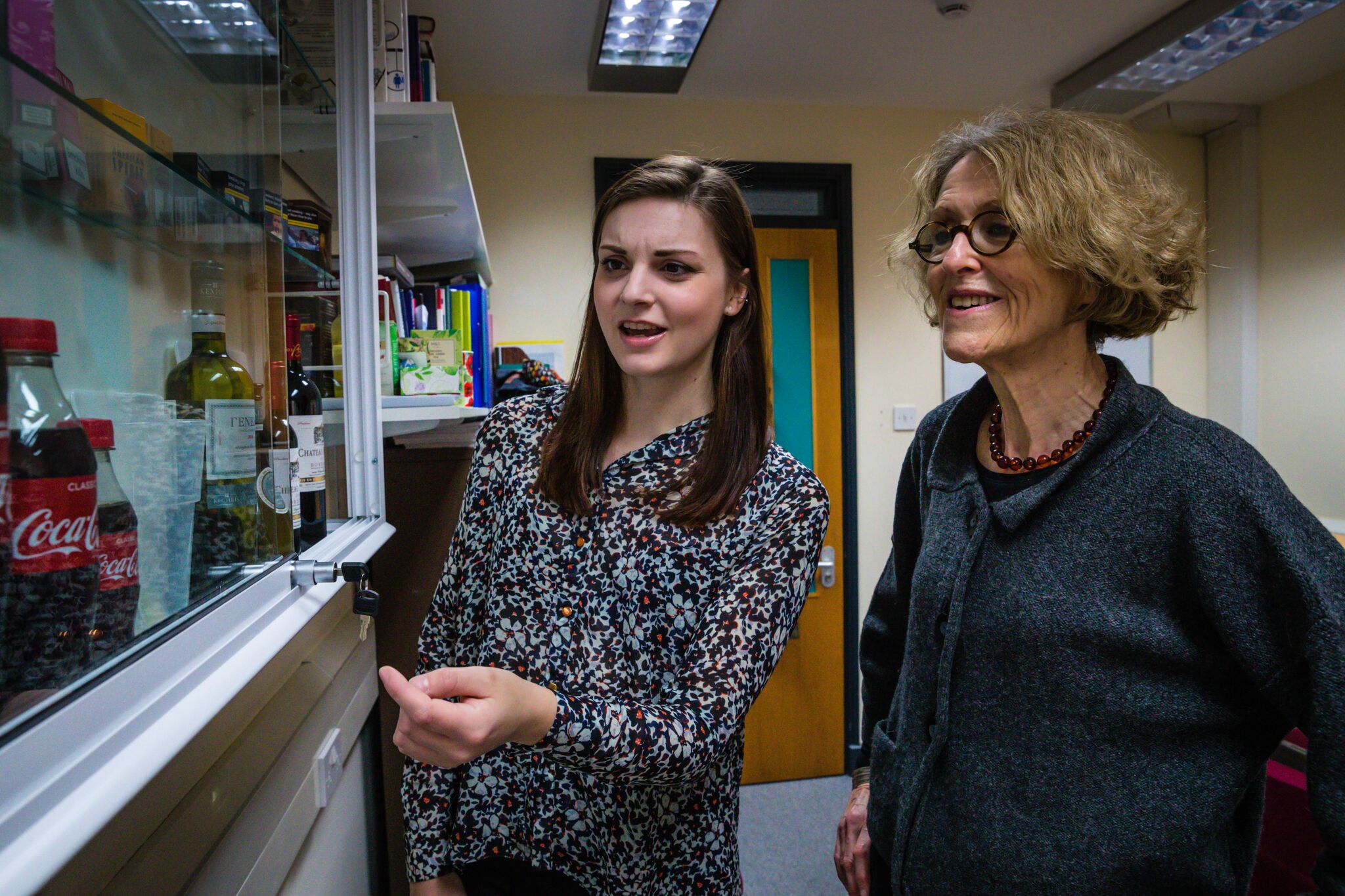Chloe Gamlin, University of Cambridge medical student and President of the student society for general practitioners at Cambridge, asks leading behavioural scientist Professor Dame Theresa Marteau to describe her career and how being a woman has influenced her work.
Chloe: In your opinion, what is the greatest public health challenge we are currently facing, and what should be done?
Our unhealthy behaviours are the main causes of preventable premature death worldwide. The gap in life expectancy between the rich and the poor and the bigger gaps in the number of years lived in good health are persisting and growing. The prize for taking effective action is huge. It is estimated that over 40% of cancers and 75% of type 2 diabetes could be prevented and the gap in life expectancy halved if we successfully tackled smoking, excessive consumption of food and alcohol and physical inactivity.
People talked about the Human Genome Project as huge, but the human behaviour change project is even bigger. Many fields need to come together – behavioural science, economics, political science, philosophy and economic history being just some of them.
Chloe: How can doctors help to tackle public health challenges?
Doctors are trusted. They have a powerful voice. While they often work with patients at an individual level – helping them to stop smoking or to lose weight – they could use their voice to call for more changes to the environments to make it more likely their patients sustain any changes they manage to make.
Chloe: How did your interest in risk information and public health develop?
Understanding why risk information does not change human behaviour has been critical in developing my current research focus. We have learned that information-based approaches to changing behaviour are based on partial models of human behaviour, neglecting the non-conscious processes that activate most of our behaviour. So targeting the non-conscious processes readily activated by the cues that surround us – like portion sizes and package design – is now the focus of the research in my group.
Chloe: What do you most enjoy in your work?
The freedom to follow an idea – going from inception to generating evidence to meeting policy makers to discuss the research findings and their implications.
Chloe: What has been the biggest challenge in your career so far?
Responding well to not getting a grant! The vast majority of researchers won’t advertise when this happens, but it is part of the experience of every researcher.
Chloe: And the biggest highlights?
The other side of the coin from the big challenge is of course getting grants! The award of a Damehood to me last year was a different highlight – a huge honour that recognised the contribution the teams I’ve led have made to generating evidence with the potential to improve population health.
Chloe: How has being a woman researcher influenced your work?
Being a woman hasn’t affected what I’ve chosen to work on. But I suspect that it has affected my attitude towards time, which would have been different if I hadn’t juggled nannies, children and au pairs as well as students and research teams all at the same time. Increasing numbers of men are active parents. But I think that it is different being the woman. Breastfeeding my two week old daughter while giving a talk sticks in my mind as one example of difference. I made some choices not to move jobs. I was a single parent for much of the time my children were at school and I wanted them to be close to their father in London. Female academics tend to move less than men due to family responsibilities, something that contributes to the gender pay gap because moving jobs usually results in pay rises.
Chloe: What changes would you like to see for women embarking on science careers in the future?
The more mentoring schemes we have, for everyone in the early stages of their careers, the better. I’m part of a national scheme through the Academy of Medical Sciences. Moving towards gender parity means tackling the pay gap, which reflects how we continue to value women less highly than men.
Professor Dame Theresa Marteau is Director of the Behaviour and Health Research Unit and Director of Studies in Psychological and Behavioural Sciences at Christs’ College, University of Cambridge.
Chloe Gamlin is Year 4 medical student, President of Cambridge GP Soc and member of Lucy Cavendish College at the University of Cambridge.
Learn more
To learn more about the challenges of improving population health and unconscious behaviours, please see Professor Theresa Marteau’s recent essay in the Lancet: ‘Changing Minds about Changing Behaviour’ –http://www.thelancet.com/journals/lancet/article/PIIS0140-6736(17)33324-X/abstract
A longer version of this interview is on the Primary Care Unit website: http://www.phpc.cam.ac.uk/pcu/
Image credit: Nick Saffell

